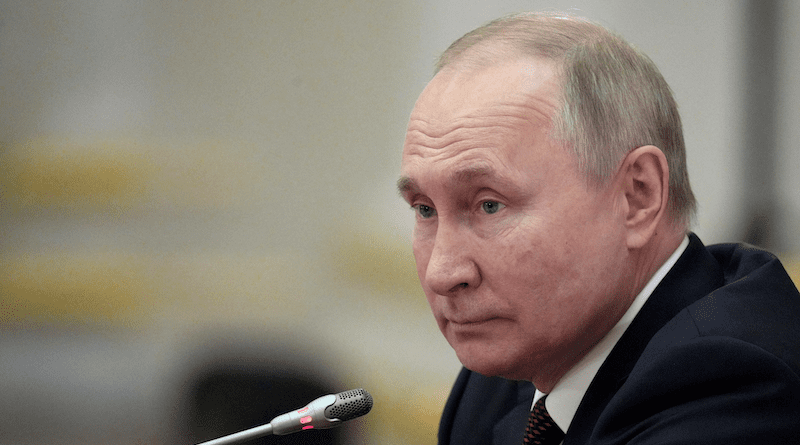Russia ‘Can’t Free Itself From Putin’s Madness On Its Own’ – OpEd
By Paul Goble
Recent events, including not only the murder of Aleksey Navalny but the Kremlin’s aggression at home and abroad show that “Russia won’t be able to free itself from Putin’s madness on its own,” a situation that is especially tragic because today the West has neither the will nor the plan to do so, Vladislav Inozemtsev says.
The Russian economist and commentator says that all Putin’s moves follow a similar strategy: first, attempts at intimidation, then a pause, and finally a decisive strike, an approach designed to “divert public attention both in Russia and abroad from the target of destruction” (theins.ru/opinions/inozemtsev/269229).
Throughout his time in power, Putin ahs succeeded more often than not and especially in “suppressing his own people.” His initial liberal reforms gave urban Russians something to lose and now they have become “captives of their own prosperity,” fearful of doing anything that might cost them any of that. And his repressions could indeed take everything away from them.
Aleksey Navalny, whom Putin has just murdered, “tirelessly tried to rouse Russians,” but he made two main mistakes: he failed to recognize that any opposition in Russia will need some support from within the government to succeed, and he bet on the wrong issue – corruption – thinking that would cause Russians to rise in defense of justice.
Now, Navalny is gone and there is no obvious candidate to replace him. Many opposition figures from the past have emigrated and become little more than “a support group for Ukraine” rather than politicians focused on Russia itself. That may be where these people can have the most impact now, Inozemtsev says; but it won’t help Russia anytime soon or by itself.
That is because for “the vast majority of Russians and not just ‘Putin supporters,’” the émigré politicians support for Ukraine “makes them traitors” and means that “any dialogue with them,” let alone viewing them as potential leaders for the country in the future, is “simply impossible.”
“Aleksey Navalny was the last major opposition politician who remained in Russia and did not predicate his future on the successes of the Ukrainian military,” Inozemtsev points out. And “therefore his loss is a catastrophic blow to the anti-Putin forces, the depressing consequences of which we will all soon witness.”
Along with other recent events, Navalny’s murder “represents a crucial milestone in the trajectory of modern Russia” because they provide convincing evidence that Russia “can’t liberate itself from the grip of Putin’s madness on its own.” It is going to need outside help and it isn’t clear where that is going to come from.
In 1995, historian Aleksandr Yanov talked about “Weimar Russia” (lib.ru/POLITOLOG/yanow.txt_with-big-pictures.html); and the current situation shows that he was “indeed onto something, Inozemtsev says. After Hitler destroyed it, only the actions of the Allies destroyed him and then “transformed Weimar Germany into the modern state it is today.”
Unfortunately, the commentator concludes, there is little understanding of the nature of the Putin problem in the West or the will to take similar actions now.

